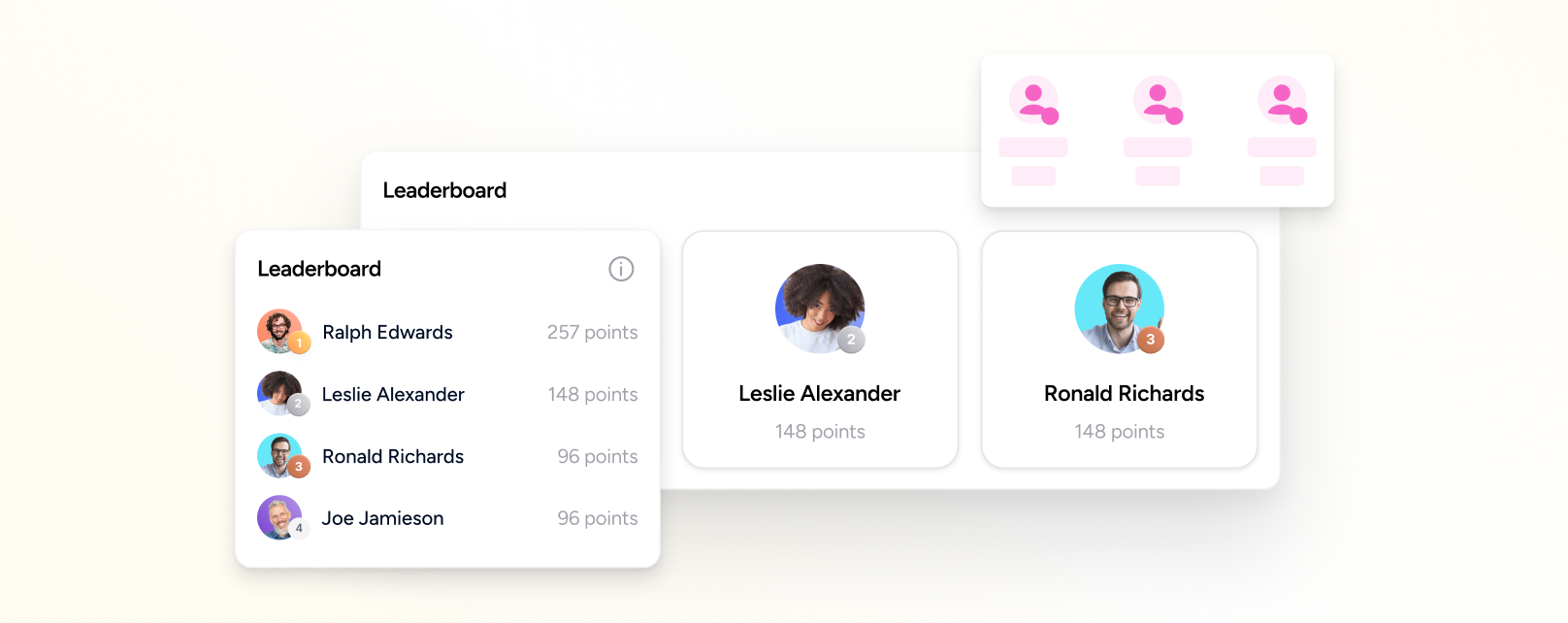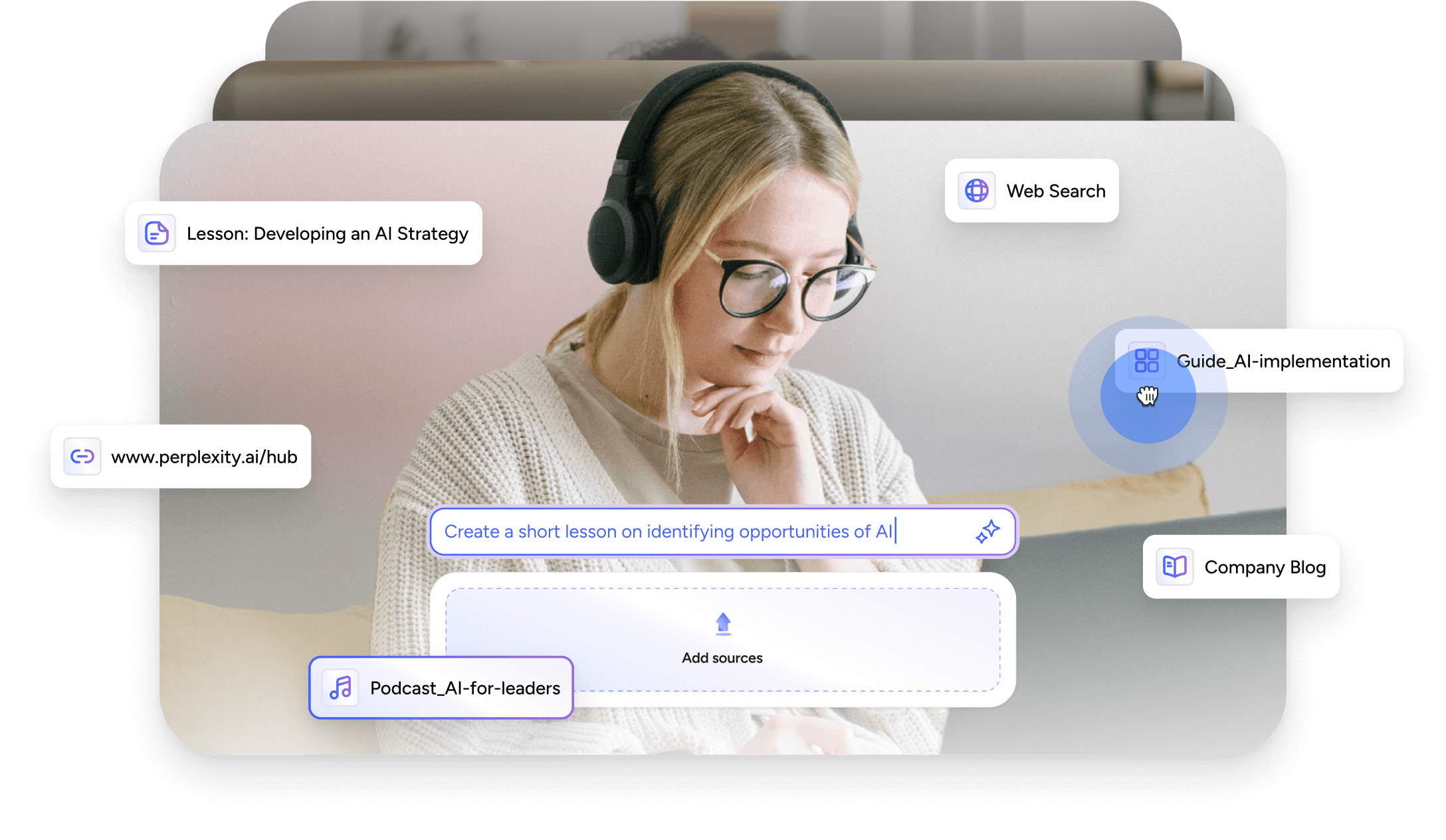Best AI Tools for Soft Skills Training in 2026

TL;DR
- What it enables: AI-powered soft skills training personalizes learning experiences and creates realistic communication scenarios for skill development
- What it includes: Machine learning algorithms, natural language processing, VR/AR simulations, gamified learning, and real-time feedback systems
- Key elements: Personalized content generation, interactive role-playing exercises, instant performance analysis, and collaborative learning environments
- Top 5 AI tools for 2026 include: Disco, VirtualSpeech, 360Learning, Rehearsal, and Practera for comprehensive soft skills training
- Why it matters: Market projected to reach $83.5 billion by 2032 as soft skills become essential for workplace collaboration and innovation
The global soft skills training market size was valued at US$ 29.8 Billion in 2023.
The IMARC Group projects that the market will expand to US$83.5 billion by 2032, reflecting a compound annual growth rate (CAGR) of 12% from 2024 to 2032.

What are soft skills, and why are they important in the future workforce?
Soft skills encompass personal attributes that facilitate effective and harmonious interactions with others. These skills include:
- communication skills,
- teamwork,
- problem-solving,
- adaptability, and
- emotional intelligence.
These skills are crucial in the future workforce as they complement technical skills, allowing employees to collaborate, innovate, and drive organizational success.
As workplaces evolve, soft skills become increasingly important for fostering a supportive environment and maintaining a competitive edge.
Artificial intelligence (AI) in soft skills training
Using advanced technologies like machine learning algorithms and natural language processing, AI tailors learning experiences to individual preferences, enhancing the effectiveness and engagement of training.

Imagine a training program that adapts to your learning style in real-time, providing continuous feedback to help you adjust your skills on the fly. This is the power of AI in action.
One of AI's most significant advantages in soft skills development is its ability to create realistic communication scenarios.
Through natural language processing, AI can simulate real-life conversations, enhancing interpersonal skills and allowing learners to practice active listening, empathy, and emotional intelligence in a safe environment.
AI-driven simulations replicate real-world challenges, allowing learners to apply their skills in practical, work-related contexts.
Moreover, AI enhances traditional soft skills training methods by incorporating interactive and gamified learning experiences. AI-powered E-learning platforms offer features like instant feedback, performance analysis, and real-time question-answering, making the learning process more dynamic and engaging.

AI serves as a catalyst for transformation, empowering individuals to develop strong, soft skills essential for success in the modern workplace.
What are the AI tools for soft skills training?
Several AI tools have emerged to facilitate effective training programs, reflecting the growing importance of soft and hard skills in the workplace.
These tools leverage artificial intelligence to create immersive and personalized learning experiences. They help employees develop soft skills such as communication, teamwork, and emotional intelligence. Additionally, these programs emphasize how soft skills enable employees to build a strong foundation of soft skills.
Let’s explore some of the top AI tools revolutionizing soft skills training in 2026:
#1. Disco - all-in-one AI upskilling platform for soft skills training
Disco is an AI-powered upskilling platform that, by 2026, will empower L&D teams and learning designers to create impactful soft skills and people skills programs for their employees.
It enables businesses to swiftly launch branded training programs. Disco combines social learning and AI to deliver personalized, modern, and scalable learning experiences.

With the backing of GSV Ventures and the trust of leading organizations like CourseHero, Kaplan, Toronto Board of Trade, and Mercury, Disco has earned accolades from Fast Company and EdTech Breakthrough.
Disco AI as a generative AI tool and AI assistant
One of the reasons Disco is one of the best AI tools for soft skills development is that it has robust functionality, from being a generative AI tool to an AI community assistant.
Disco AI works well across the Disco platform. It generates an entire training program in seconds, including texts, images, video assets, quizzes, and assignments.
Experience how it works in seconds with this free tour:
And generate your first curriculum today!

Besides being an AI curriculum generator, Disco AI also assists learning operators, generating discussion posts, answering member queries, and suggesting prompts to enhance member participation.
Watch how Disco AI re-engage inactive members in seconds:
Beyond being an AI-powered platform, Disco is an all-in-one solution that allows you to consolidate your database efficiently and manage the entire cycle of your training programs.
Here are some other standout features of Disco:
- Automates content creation and administrative tasks
- Quick launch and scaling of branded training programs
- Cohort-based social learning with real-time interaction
- AI-powered operational automation and insights
- Robust analytics for tracking learner progress
- Customizable interface for personalized learning experiences
- Integrates with popular tools like Slack and Zoom
🪩 Want to increase employee performance through skills training? Start with Disco's 14-day free trial to launch your first generated curriculum in less than a day. Book a demo with our team if you want a personalized quotation.

#2. VirtualSpeech - soft skills training in VR/AR with AI-powered feedback
VirtualSpeech elevates soft skills training through its innovative AI-powered VR training programs.
Specializing in public speaking, leadership, and sales, VirtualSpeech offers a range of role-plays and practice exercises designed to enhance communication skills.
Thanks to the platform's immersive and engaging training methods, users can experience a significant skill boost after just 30 minutes of practice.
Key features:
- AI-Powered VR Training: Leverages virtual reality to create realistic training environments.
- Diverse Training Modules: Over 35 roleplays and more than 55 practice exercises are offered.
- Instant Feedback: Provides real-time feedback on practice sessions to identify strengths and improvement areas.
- Flexible Learning Options: Training available in VR, mixed reality (MR), or online environments.
- Self-Paced Learning: Allows users to progress at their own pace, offering a personalized learning experience.
Examples of skills training:
- Public Speaking: Enhances confidence and delivery through simulated speaking scenarios.
- Leadership Development: Focuses on building leadership and decision-making skills.
- Sales Techniques: Offers training to improve negotiation and persuasive communication.
- Communication Skills: Develop effective interpersonal communication and active listening skills.
VirtualSpeech’s comprehensive approach to soft skills training ensures that learners receive a flexible and tailored experience, making it a valuable tool for personal and professional growth.
Pricing starts at $45 per month for individual users. For enterprise solutions, please contact their sales team for a customized quote.
#3. 360Learning - AI collaborative platform to enhance soft skills
360Learning is an innovative AI-powered platform that excels in collaborative learning and enhancing soft skills training.

360Learning personalizes training recommendations by leveraging AI-driven insights, ensuring that each learner receives content tailored to their unique needs.
This targeted approach makes 360Learning an ideal tool for developing essential soft skills such as communication, teamwork, and emotional intelligence.
Key features:
- AI-Powered Question Generator: Creates personalized training content tailored to individual learning needs.
- Collaborative Learning Environment: Facilitates participant interaction and feedback for a supportive learning experience.
- Real-Time Peer Feedback: Enables collaborative skill development and continuous improvement.
- Personalized Training Recommendations: Delivers targeted content to address specific skill gaps.
- Scalable for Organizational Needs: Adaptable to various organizational sizes and learning requirements.
360Learning's innovative approach to soft skills training makes it a powerful tool for any organization looking to develop a workforce with strong interpersonal skills and effective communication abilities.
Pricing for teams starts at $8/registered user per month for up to 100 users/month.









